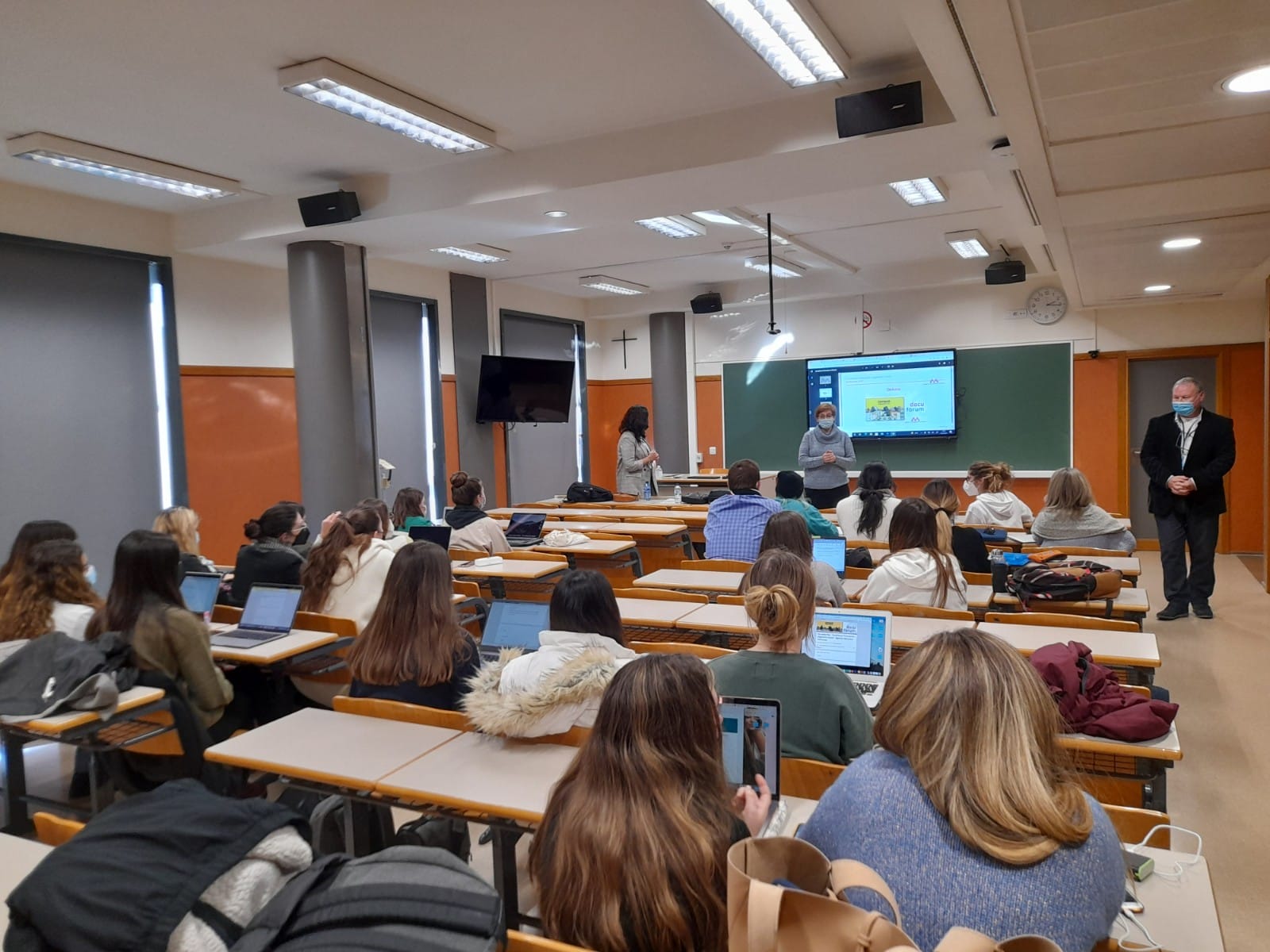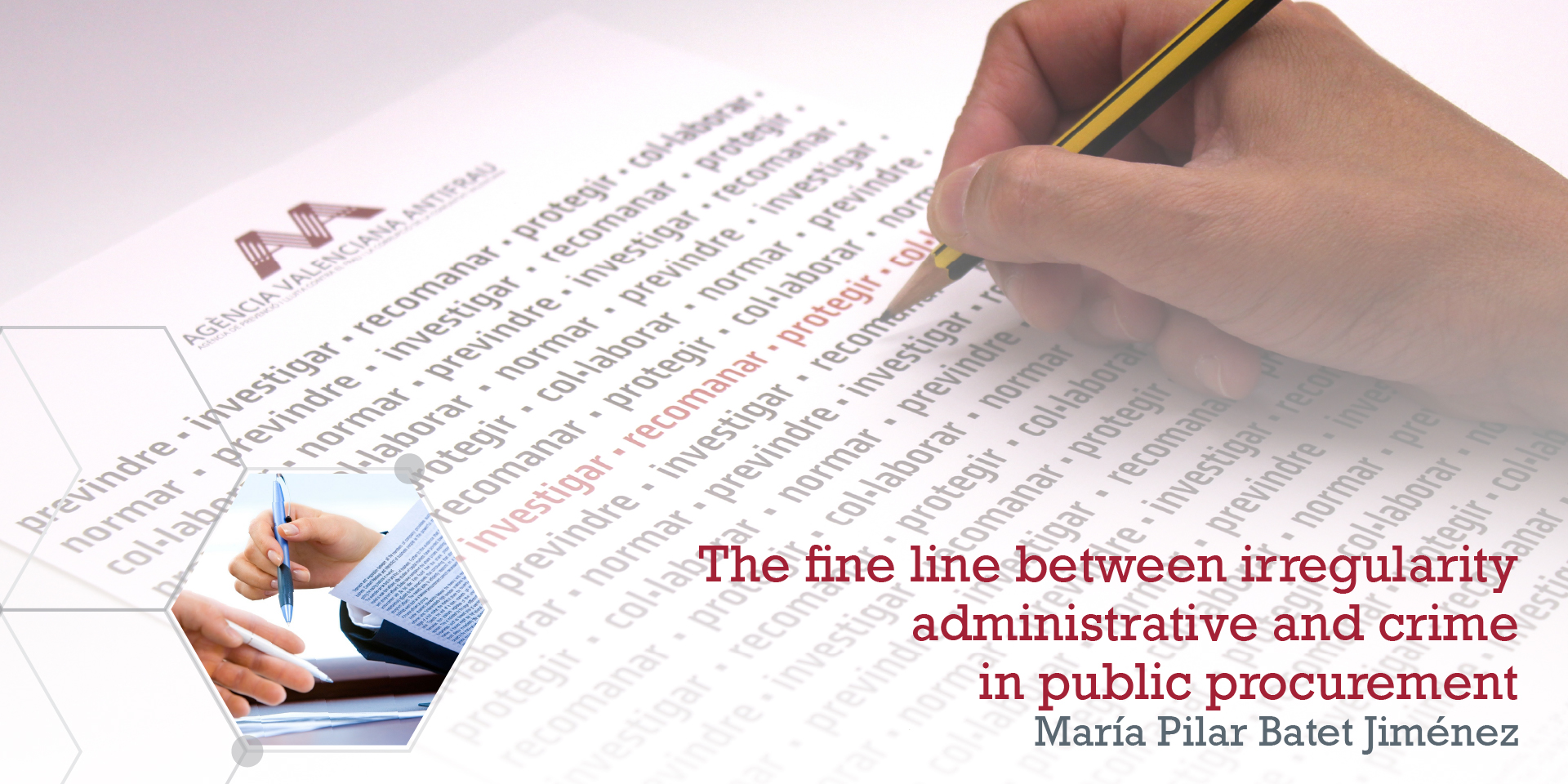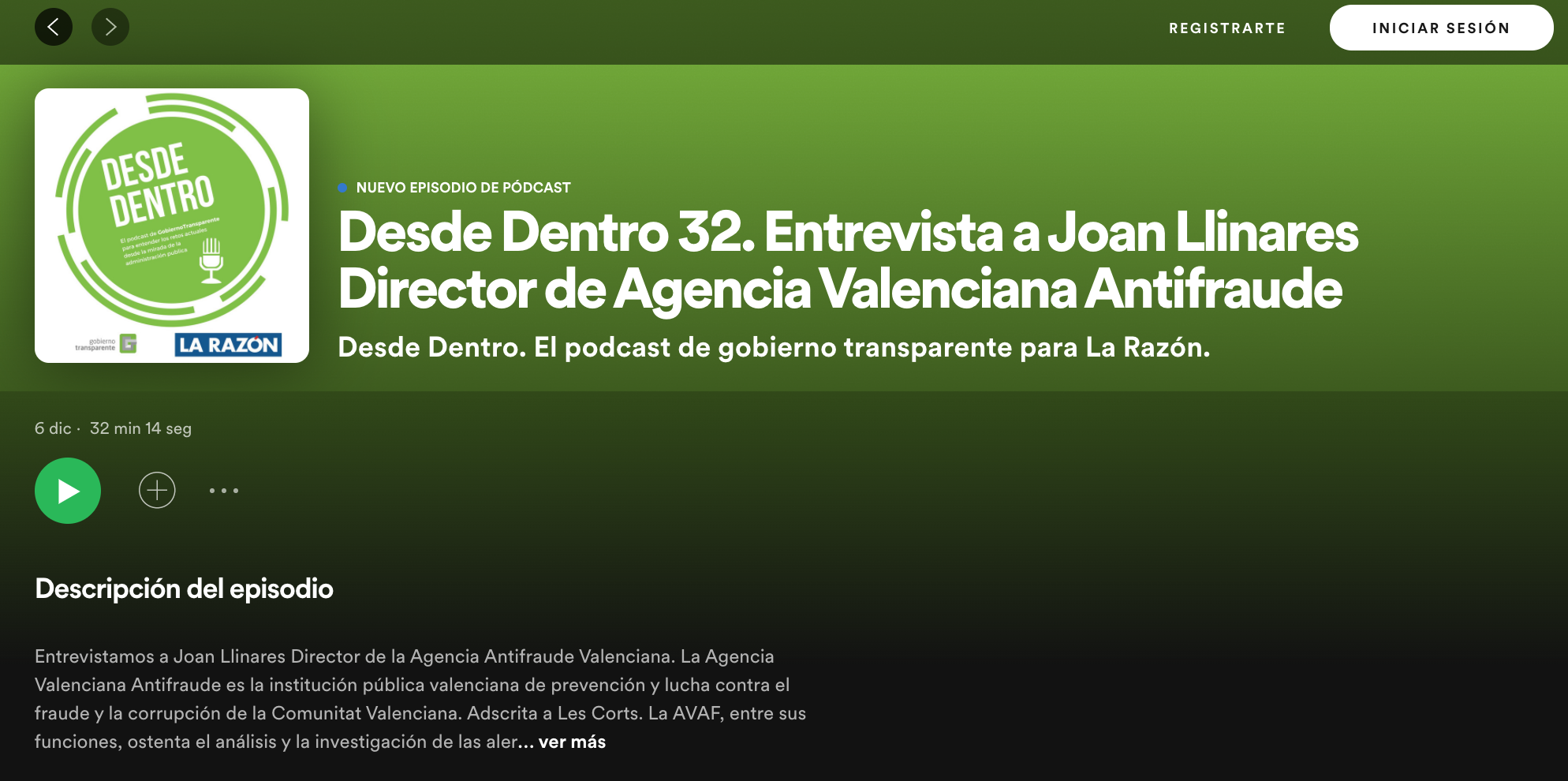For several years now, numerous procedures for demanding criminal liability from authorities and officials in the matter of public procurement have been resolved. The most common crime is prevarication in administrative contracting.
And it is that, Juan Bravo Murillo already warned in the exhibition he made to Queen Elizabeth II, in 1852, of the danger of public contracting:
“Madam: Competently authorized by VM, with the prior agreement of the Council of Ministers, the Treasury presented to the Cortes on December 29, 1850, a bill of contracts on public services, in order to establish certain healthy obstacles, avoiding abuses. easy to commit in a matter of dangerous stimuli, and to guarantee the Administration against the shots of slander … “.
But when are we in the presence of criminal behavior and when are we not?
Fortunately, not every administrative offense, not every irregularity in the processing of a file, not every omission of a legally required procedure can be classified as constituting a crime of prevarication. But the line between an administrative irregularity and a crime is somewhat blurred.
The crime of administrative prevarication, according to the provisions of art. 404 of the Penal Code, refers to “the authority or public official who, knowing its injustice, dictates an arbitrary resolution in an administrative matter, will be punished with the penalty of special disqualification for employment or public office and for the exercise of the right of passive suffrage for a period of nine to fifteen years ”.
The injustice contemplated in the Penal Code supposes a “plus” of contradiction with the legal norm that is what justifies the intervention of the criminal law. The jurisprudence has maintained that for an administrative resolution to be classified as a crime of prevarication, it is necessary that its illegality be “evident, patent, flagrant and clamorous”, drawing attention to the question of the easy knowability of the contradiction of the act with the right.
To assess the existence of a crime of prevarication, a reiterated jurisprudence (see SSTS 1021/2013, November 26) has indicated that it will be necessary:
a) a resolution issued by an authority or official in an administrative matter;
b) that it is objectively contrary to the law, that is, illegal;
c) that this contradiction with the law or illegality, which may manifest itself in the absolute lack of competence, in the omission of essential steps in the procedure or in the substantial content of the resolution itself, is of such an entity that it cannot be explained with a minimally reasonable technical-legal argumentation;
d) that causes a materially unfair result;
e) that the resolution be issued in order to enforce the particular will of the authority or official and with the knowledge of acting against the law by arbitrarily eliminating free competition in an unjustified exercise of abuse of power. In this sense, it is not mere illegality but arbitrariness that is sanctioned.
As we can see, administrative prevarication involves “knowing arbitrariness”. Mere illegality is not enough, since the administrative regulations already foresee cases of nullity controllable by the contentious-administrative jurisdiction without the application of Criminal Law being necessary in any case, which will thus be restricted to the most serious cases (STS 359/2019 , of June 15).
And, although not every absence of procedure leads to the criminal type, it will have criminal relevance if in this way what is sought is to eliminate the mechanisms that are established precisely to ensure that its decision is subject to the purposes that the law establishes for the specific administrative action in which it adopts its resolution. They are, in this sense, essential procedures (STS nº 331/2003, of March 5).
To appreciate the contradiction of the administrative act with the law, the courts have stated that:
– it must be a blatant and gross contradiction (STS of April 1, 1996),
– or resolutions that go beyond the legality in an evident, flagrant and resounding way (SSTS of May 16, 1992 and April 20, 1994),
– or of a deviation or distortion of the law in such a rude, clear and evident way that the extra unlawfulness required by the criminal offense is appreciated (STS of May 10, 1993),
– Or the arbitrary exercise of power, when the authority or the official issue a resolution that is not an effect of the Constitution and the rest of the legal system but, purely and simply, a product of their will, unreasonably converted into an apparent source of regulations, and the result is an injustice, that is, an injury to a right or the collective interest, and when the arbitrariness consists in the mere production of the resolution -because its author does not have legal competence to dictate it- or in the non-observance of the essential procedure to which its genesis must conform (STS of October 23, 2000).
The existence of an arbitrary resolution may be appreciated when omitting the procedural requirements mainly involves the circumvention of the controls that the procedure itself establishes on the merits of the matter (STS 743/2013, of October 11 and STS 152/2015, of October 24, February, among others).
Regarding the concept of “administrative resolution”, the Supreme Court, in its judgment of February 24, 2015, establishes that said concept “is not subject to a rigid formal scheme, even admitting the existence of verbal acts, without prejudice to its constancy written when necessary. A resolution is understood to be any administrative act that involves a declaration of will of decisive content, which affects the rights of the administered or the community in general, either expressly or tacitly, in writing or orally, excluding political acts. or government as well as the so-called procedural acts (eg reports, consultations, opinions or proceedings) that implement and order the procedure to make the final resolution viable.
Is it possible to maintain that there is a criminalization of administrative law?
The doctrine on some occasions has maintained that currently the cases previously dealt with with legal-administrative techniques have been criminalized or, in other words, the use of the penalty at the service of the effectiveness of rules of behavior based on administrative law. or even replacing him in his own role.
The Supreme Court, in Sentence no. 302/2018, dated 06/20/2018, stated that it is not possible to speak of a criminalization of administrative law, when we are in the presence of a criminal offense with conducts perpetrated with fraud, and causing a deterioration of the image of the public function .
The Supreme Court points out that “in these cases, a theory that could be called« The criminalization of administrative law »cannot be appealed, since it is not that the convicted persons have carried out by action or omission mere irregularities or breaches required by a norm. administrative, or in a contracting process, in the manner of infractions that could have their reflection and solution before the contentious-administrative jurisdiction, but they are fraudulent actions carried out with conscience and will to alter the administrative procedure to carry out the act for the benefit of a person and with evident damage to those who cannot access the administrative acts due to the direct action of the accused who does not carry out only mere administrative irregularities that can be corrected, or not, by complementary administrative acts or rectification, but rather the entity of the act It is serious and relevant that it involves a clear injustice of it knowingly that it is.
According to the Supreme Court, the principle of minimal intervention of criminal law is applicable, and that there would be a criminalization of administrative law if in the face of a mere action of the authority or public official of little entity or relevance, or that can be challenged before the jurisdiction administrative litigation, they refer to criminal proceedings, indicating that “this does not occur when the elements of the criminal types concur in cases of crimes against the Public Administration, not assuming a mere administrative irregularity, but a true criminal offense with conduct perpetrated with intent , and causing a deterioration of the image of the public function. “
Let’s look at some examples of convictions for misdemeanor in public procurement.
– In the aforementioned judgment no. 302/2018, the Supreme Court confirms the sentence to five years in prison, twenty-four years of disqualification for employment or public office and the fine imposed by the Provincial Court of Las Palmas de Gran Canaria to a former councilor, for two crimes of bribery and one of trespass committed in the so-called ‘Paradise’ case. It also confirms the penalties imposed on the former mayor of said municipality, as well as the architect of the town hall and the general director of the contractor company.
The facts that led to the conviction were that once the amount of the amount in which the urbanization works had been awarded had been exhausted, both by the company and by the officials and councilors involved, a way was devised to cover the works that the company had carried out, promoting the processing of a “second phase” of said works, with the aim of avoiding the processing of a contracting file in which other possible bidders could concur; they altered reality to make a direct award through the negotiated procedure without advertising, which was not applicable in the case at hand. Likewise, and to evade the legality controls established in the applicable procedure, they deliberately omitted the completion of the procedures and the presence of essential documents for the processing thereof.
– In another matter, the Supreme Court, in Sentence nº: 391/2014 dated 05/08/2014, which confirms the judgment handed down by the Balearic Islands Provincial Court of July 23, 2013, in which it is convicted of prevarication to different people for the sale of a property, without using the auction, in order to control and direct the tender and award it to the bidder that best suits them, making it possible to receive a possible commission and, on the other hand, facilitated the to be able to supervise the appraisal price of the land, which was for a lower value than the real market value.
– The Sentence of the Supreme Court, of April 30, 2015, condemns the mayor, the controller and the architect, who had been hired successively with minor contracts, whose total amount of the awarded contracts amounted to 776,522 euros. The awards were made outside of the procedures provided for this purpose in the Public Administration Contract Law in force at that time, thus eliminating the possibility of competition for other companies and professionals. The projects were directly awarded to him, without determining the object of the contract, setting the price or the report on the possibility of their execution by the municipal technicians. The awards were initially made verbally, and then an order sheet was recorded that did not set a price, so that the only documentation that appeared in the file was the invoice issued by it and the accounting documentation for payment and its approval by the Governing Board. Ultimately, it was treated as a “minor contract”, limited to cases in which the price was less than 12,020 euros, despite exceeding this quantitative limit.
– The Sentence of the Criminal Court of Melilla 233/2017, of October 6, 2017, of which eight were convicted of prevarication (lawyers, officials and a politician) for chaining minor contracts of legal advice. The ruling indicates that this “arbitrary” contracting system allowed the direct and “capricious” designation of lawyers to the detriment of the rest of the professionals in the field and to avoid the prior inspection so that the contractual division would go unnoticed by the controller, which As indicated in the document, it would not have been possible if the administrative procedure legally established for these cases had been followed.
– Likewise, the Granada Provincial Court, through resolution No. 279/2017 dated 05/30/2017, condemns the defendants who, in order to avoid the controls and procedures provided for in the contractual legislation, divided without any record into contracts minors, everything related to the Mercamed Fair event, such as the transport of material, security or assembly, with the aim of “avoiding legal controls and procedures”.
Do all the convictions refer to obvious crimes and of a significant amount?
It’s not like that. Let’s look at two convictions in which we are in the presence of a fractionation in small value contracts.
– The Sentence of the Supreme Court No. 259/2015 of July 1, 2015, condemns to seven years of disqualification to a former Deputy Councilor of the Principality of Asturias and the Secretary General of the Ministry for prevarication by illegal splitting of a contract for the acquisition and placement of 81 milestones commemorating the existence of mass graves from the Spanish Civil War. Thus, for a single supply of 81 limestone milestones with box opening for plate placement as well as transportation and placement in various places in Asturias, three minor contracts were issued for the supply, manufacture, delivery and placement of 27 of said milestones. , for an amount each of 17,712 euros plus 18% corresponding to VAT, all this, despite the fact that the official who had to process the contracts expressed her opposition and her resignation to process said contracting.
– The Sentence of the Criminal Court of Oviedo 55/2018, of February 22, 2018, condemns a former head of the Department of Education of the Government of the Principality of Asturias to seven years of professional disqualification for a crime of prevarication, by splitting the object of the contract to process two minor contracts referring to the same computer application and give their agreement to the invoices without having concluded the execution of the contract.
The official processed two minor contracts for two applications despite the fact that both were interrelated and that they should have been processed with a single contract, subject to the principles of transparency, publicity, competition, and equal treatment and non-discrimination, acting the defendant knowing the illegality of such division, spacing the remission of both files so that it would go unnoticed in the contracting service. Both invoices were paid on January 30, 2014, despite the fact that the company had not yet complied with the terms of the contract, as it had not created any of the contracted applications that were to be developed jointly, the defendant being aware of the impossibility of its creation and development on that date.
As we can see, we are in the presence of convictions in contracts of small value and in which, in principle, there is no intention of the convicted to benefit financially from the contract. It is true that in the referred behaviors there is a “plus” to the splitting of the contract: the prior warning of illegality in the first case, or the fact of having received non-existent jobs, in the second; Despite this, it is somewhat questionable to consider such illegalities as worthy of the intervention of criminal law. And it is that arbitrary public procurement is a risky business.
María Pilar Batet Jiménez
Head of Procurement Service and Purchasing Center
Diputació de Castelló










